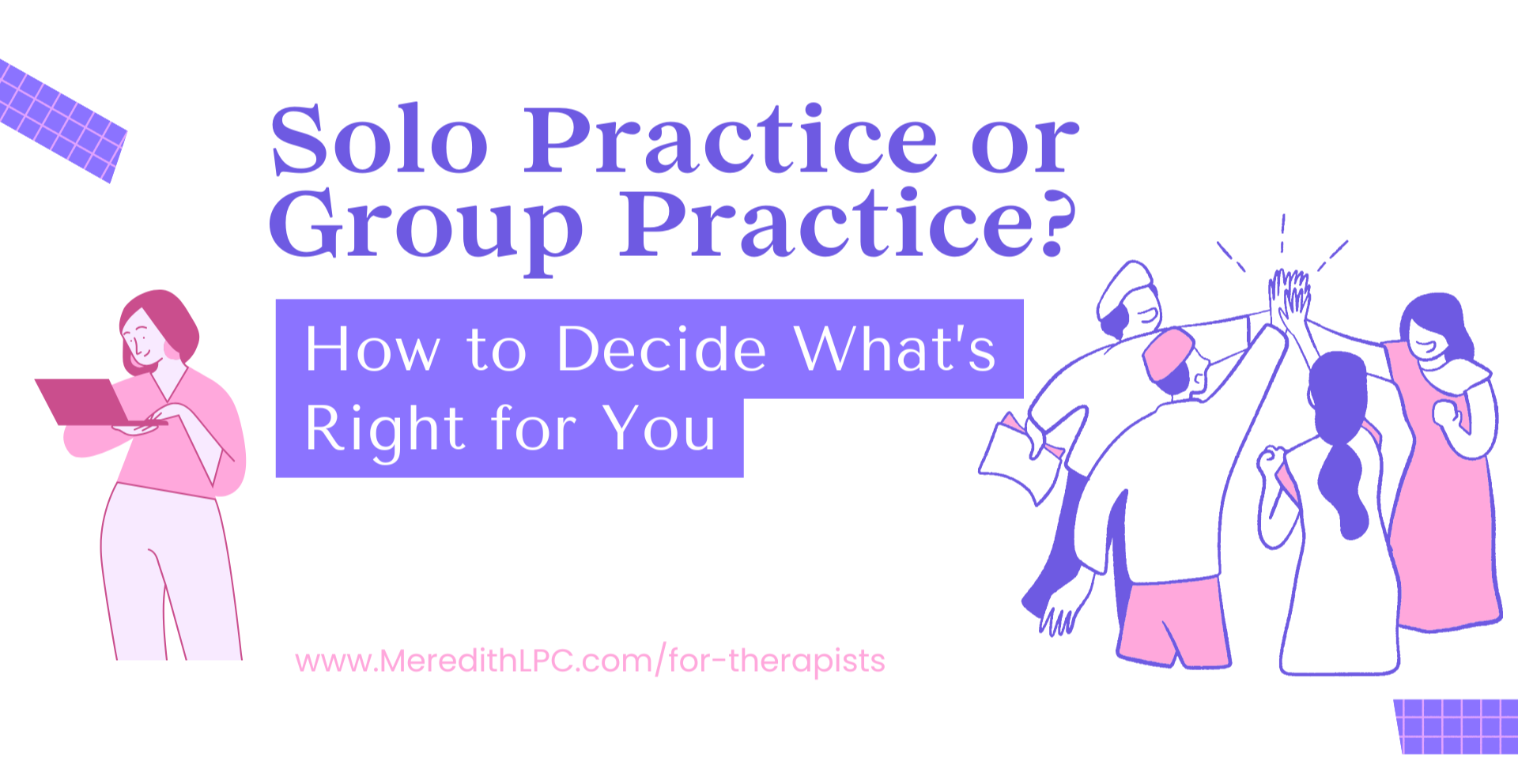How to Utilize Social Media for Marketing as a Therapist: A Guide for Growing Your Private Practice
As a therapist, you’ve spent years learning how to help people—yet when it comes to marketing your private practice, it can feel overwhelming or even uncomfortable. You’re not alone. Many mental health professionals didn’t get into this field to become marketers. But in today’s digital age, social media marketing for therapists is one of the most powerful ways to grow your practice, build your reputation, and attract the right clients.
Whether you're just starting out or looking to scale your therapy business, using social media strategically can make a significant impact—and it doesn't have to feel salesy or inauthentic.
In this post, I’ll walk you through how to utilize social media for private practice marketing in a way that feels aligned with your values as a clinician and sustainable for your time and energy. Let’s dive in.
Why Social Media Matters for Therapists
Social media isn’t just for influencers and big brands—it’s for connection, visibility, and education. Here’s why it works so well for private practice marketing:
Builds trust and relatability: People often want to know who their therapist is before they reach out. Social media offers a window into your personality, values, and approach.
Establishes you as an expert: Sharing helpful tips, psychoeducation, or insights can position you as a trusted voice in your niche.
Supports SEO: Your social media profiles and content can improve your search engine visibility, especially when linked to your website.
Drives referrals: Other therapists and professionals are often active on social media. Being present increases the likelihood of referral opportunities.
Choosing the Right Platforms
You don’t need to be everywhere. Start with one platform where your ideal client—or your ideal referral partner—spends time. Here's a breakdown of the most effective platforms for therapists:
Instagram: Great for visual content, quotes, short videos (Reels), and stories. Many therapists thrive here by sharing mental health tips and behind-the-scenes content.
Facebook: Useful for longer posts and community building. Facebook groups can also be a great networking tool.
LinkedIn: Ideal for connecting with professionals, building referral networks, and sharing more formal, niche-specific content.
TikTok: A good fit if you’re comfortable on video and want to reach younger audiences with short, relatable mental health content.
Consider your comfort level, audience, and content style when deciding where to show up.
Content Ideas for Therapists on Social Media
You don’t need to overshare or do elaborate dances on video. Your goal is to provide value and build connection. Here are content ideas that work well for marketing your therapy practice:
Mental health tips: Short, actionable insights on topics you specialize in (e.g., anxiety, relationships, boundaries).
Psychoeducation: Help your audience understand therapeutic concepts or common struggles.
Myths vs. facts: Bust common myths about therapy, trauma, or diagnoses.
Behind the scenes: A glimpse into your therapy space (with confidentiality intact) or what it’s like being a therapist.
Therapist reflections: Thoughtful posts about the therapeutic process or what you're passionate about.
Call to action: Let people know how to reach out to work with you or share a booking link.
Balancing Professionalism and Personality
It’s possible to be authentic without being too personal. You can share your values, your approach, or your take on current events—without violating ethics or boundaries.
Avoid giving individualized advice online.
Maintain confidentiality at all times.
Focus on education, encouragement, and empowerment.
Keep your tone consistent with your therapy brand (warm, grounding, empowering, etc.).
Remember, your potential clients aren’t expecting you to be a polished influencer—they’re looking for someone real who understands and can help them.
Social Media and SEO: A Strategic Pair
Many therapists overlook the connection between social media and search engine optimization (SEO). Here’s how to make it work for you:
Link to your website often. This drives traffic and improves your Google ranking.
Use keywords in your bios, captions, and hashtags. Examples: “online therapist for anxiety,” “trauma therapy in Georgia,” or “couples therapist tips.”
Share your blog posts across platforms to increase visibility and boost your content's SEO performance.
Use alt text for images to make them more accessible and searchable.
Every time you post, think about how you can naturally weave in your niche, specialty, or services.
Tips to Stay Consistent Without Burning Out
Therapists are busy people. You don’t need to post every day to make an impact. Here are ways to stay consistent:
Batch your content: Set aside a few hours to create multiple posts at once.
Use scheduling tools like Later, Planoly, or Meta Business Suite.
Reuse and repurpose: A blog post can become 3–5 social posts. A caption can become a Reel.
Set boundaries: Limit your scroll time and step away when needed. Social media is a tool, not your full-time job.
Ready to Take It Further?
If you’re feeling stuck on how to use social media for marketing your therapy practice, you’re not alone. It takes time to find your voice and rhythm—and a little guidance can go a long way.
As a therapist who helps other mental health professionals build thriving practices, I offer 1:1 consultations to support you in crafting a marketing strategy that feels aligned, ethical, and effective. We can create a simple plan tailored to your niche, audience, and energy level.
📩 Schedule a consultation today or reach out with questions. Let’s make marketing feel like a natural extension of the work you already love to do.
Related Articles: "Wait, What’s SEO?" A Beginner’s Guide to Marketing Yourself as a Therapist Online
How to Write a Therapist Directory Listing That Stands Out (And Actually Gets You Clients)
Best Free (and Low-Cost) Marketing Strategies for Private Practice


